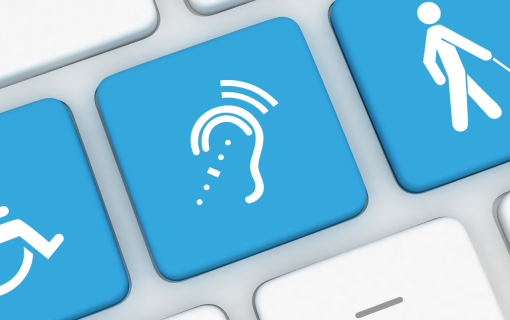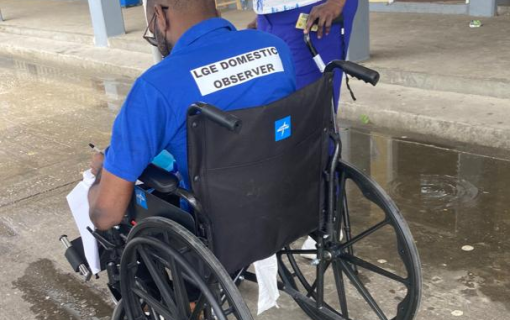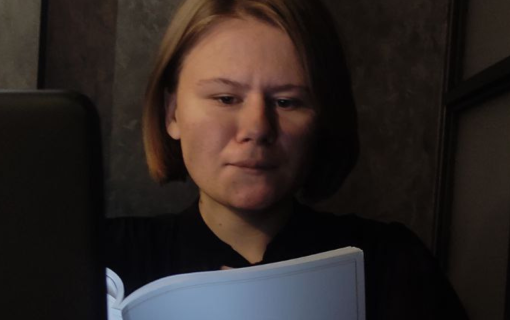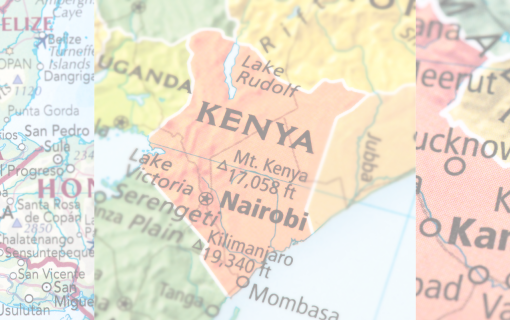
Q&A with U.S. Congressman Langevin
In 2000, U.S. Congressman Jim Langevin (D-R.I.) was the first quadriplegic elected to serve in the United States House of Representatives. During his tenure, he has been recognized as a national leader on security, healthcare and cybersecurity, as well as being a strong advocate for inclusion and independence for persons with disabilities. Congressman Langevin graduated from Rhode Island College and earned a master’s degree in Public Administration from the Kennedy School of Government at Harvard University. He currently resides in Warwick, Rhode Island.
In this Q&A, Congressman Langevin speaks with the International Foundation for Electoral Systems (IFES) about his experiences in public service, his advocacy work for persons with disabilities, and encouraging political participation by persons with disabilities.
You are one of the few people with a disability currently serving in the United States Congress. Why did you decide to enter public service? Did you encounter any accessibility challenges while campaigning, or once you entered Congress? What advantages are there in being a Member of Congress with a disability?
I was paralyzed at the age of 16 after a bullet severed my spinal cord. I was incredibly lucky to have the support of my family and my community, whose generosity and concern ultimately inspired me to give back to Rhode Island through a career in public service. Although physical barriers have made knocking on doors during the campaign a little more challenging, I have been overwhelmed by the assistance of my campaign volunteers and the willingness of voters to meet with me outside of their homes to discuss their thoughts and concerns in the instances where I cannot physically reach their doorsteps.
The same is true of my time in Congress. When I first arrived in 2000, as the first quadriplegic ever to serve in the House of Representatives, some changes had to be made to accommodate my service. The historic buildings of the Capitol weren’t built with today’s accessibility standards in mind. Yet, I was – and continue to be – overwhelmed by how flexible my colleagues and the House Leadership have been in ensuring that I can work in Congress just as effectively as any other member.
My belief in the role of government was shaped around the idea of personal empowerment. My experiences have taught me that despite our disparate backgrounds and numerous challenges, we all have innate potential to achieve great things. Sometimes we need a little help to level the playing field, but if we are given the right tools, we can turn our collective challenges into great opportunities.
Please tell us a little bit about your advocacy work in regards to the Convention on the Rights of Persons with Disabilities in the United States. How does support for the disabilities treaty benefit the United States? What do you tell your colleagues when you ask them to support the disabilities treaty?
The United Nations Convention on the Rights of Persons with Disabilities (CRPD) is a treaty based on the fundamental principles of the Americans with Disabilities Act (ADA), and its goal is to break down physical and societal barriers, reduce global discrimination and promote respect and inclusion for individuals with disabilities around the world.
As a member of the House of Representatives, co-chair of the House Bipartisan Disabilities Caucus, and someone who has lived with the challenges of a disability both before and after the ADA's enactment in 1990, I have been a passionate advocate for U.S. ratification of the CRPD for many years. In 2012, I was proud to join CRPD champion Bob Dole on the Senate Floor to urge my colleagues to support this treaty. Unfortunately, we were unsuccessful in reaching the two-thirds majority required for ratification, but I remain optimistic that we will ultimately succeed in joining the 160 other nations that have already ratified the treaty.
I have long said that people with disabilities are America’s greatest untapped resource. The same is true across the globe. By opening the doors of opportunity and accessibility to housing, transportation, healthcare, education and employment, we can help give every individual a chance to fulfill his or her potential as a contributing member of society.
Article 29 of the CRPD specifically establishes and protects the right to political participation for men and women with disabilities. Why is political participation an important right for persons with disabilities? Generally speaking, what improvements could be made to empower people with disabilities and increase their participation in the political process?
Full political participation and engagement is a core tenet of our democracy, and anything that creates a barrier to that participation is anathema to our democratic values.
For people with disabilities – or any other historically marginalized position – political participation is how rights are secured. The ADA’s enactment came about because of the ceaseless work of advocates who refused to accept second-class citizenship. The simple fact is that decisions are made by those who show up – not just on Election Day, but all year long.
Whether registering people with disabilities to vote, making polling locations accessible, educating voters about the issues that affect them, teaching them how to communicate effectively with their representatives, or encouraging them to run for office themselves, there are countless ways to participate in the political process and to make sure their voices are heard.
By ensuring that people with disabilities have the same rights to participate in the political process as anyone else, we are living up to the highest ideal of democracy: guaranteeing each and every person a voice in governance.









